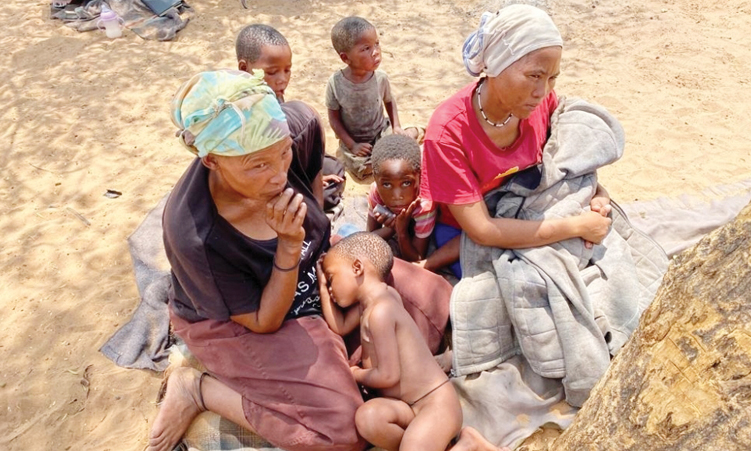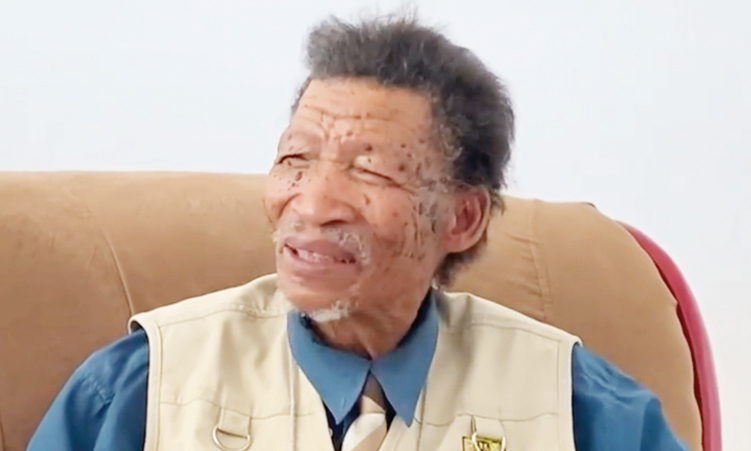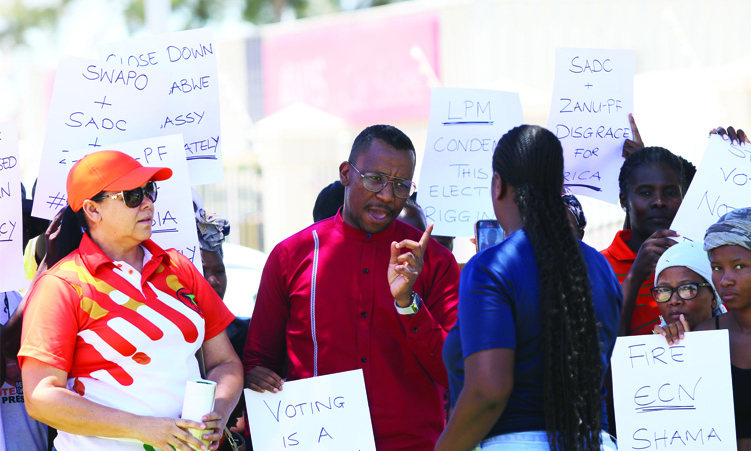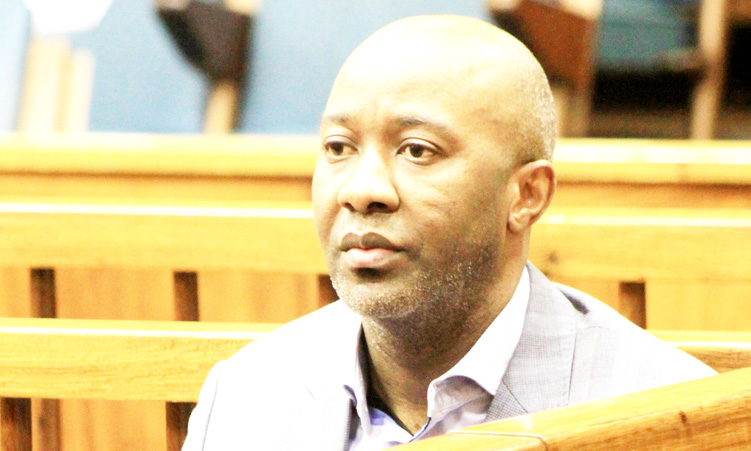Former Okakarara constituency councillor Vetaruhe Kandorozu says the resettlement process at Skoonheid Resettlement Farm exposes the loopholes of Namibia’s land reform programme.
His stance on conditions at the farm, where members of the
San community are allegedly subjected to abuse and pushed to the periphery of the property, was backed by Institute of Public Policy Research (IPPR) research associate Frederico Links.
This follows a National Council Outreach report indicating that the farm, which was initially allocated to the previously marginalised San community, is now populated by members of other tribes.
The report was compiled by National Council chairperson Lukas Sinimbo Muha, after a National Council delegation visited the Kao ≠Aesi Traditional Authority and Skoonheid Resettlement Farm, located about 110 kilometres east of Gobabis.
“The chief submitted that the San are deprived of their rights and abused by other tribes,” notes the report.
In addition, there is confusion surrounding the matter of 44 Ovaherero families from Botswana who were moved from Eiseb Block and Omitara to Skoonheid.
Some community members have raised fears that the current arrangement is setting the San against other tribes.
NO ALLOTMENT LETTERS
Kandorozu blamed the government and said Skoonheid, as well as other similar farms in the Otjozondjupa region, were intended to host those dispossessed of their land, like the San, and those affected by drought and similar disasters.
He said the government is delaying the issuing of allotment letters to the intended beneficiaries.
“The resettled cannot prove their right to the land without these allotment letters and land intruders step in and take advantage of the situation,” Kandorozu said.
“Not having these allotment letters disenfranchises the resettled people, because they can not benefit through the N$200 000 loans from Agribank, which is available to resettled farmers.”
The delay in the issuance of letters is a result of the government pleading ignorance of the plight of the San, he asserted.
“There is no political will to drive the process. The San community in general is overlooked in this country, despite everyone agreeing that the San are the indigenous people of Namibia.”
BAD EXECUTION
Weighing in on the issue, Links said ignoring the situation is likely to fuel tribal sentiments that are “not good for building a national identity and cohesion”.
He said the resettlement process should not end with land, but continue to empower resettled farmers to become productive on the land.
“Failure to do so opens the resettled farmers up to abuse and further victimisation by their neighbours, who in most instances have been farming for years,” Links said.
“Here we are speaking of members of the San community, a people who have been known to be hunters-gatherers and nomadic in their manner of living. If we then want them to adapt to a farming lifestyle, the necessary guidance is required. This should have been done a long time ago.”
Links slammed public assertions that if the San are still considered marginalised 33 years after independence, then other Namibians can also be considered marginalised.
“We cannot do away with the marginalised title for the San community until the situation on the ground and the livelihoods of those affected reflect change for the better.”
Links blamed the local council and the line ministry for not addressing the situation effectively.
“It is the councilor’s job to elevate these issues to the central government.”
LONG TIME COMING
Efforts to locate Okorukambe constituency councillor Rocco Nguvauva proved futile, however, in an interview with Namibian Sun, Nguvauva also blamed the government for the issue.
“All this is the result of the line ministry, which does not have a stand on the matter. This matter existed even before I became councillor, but nothing has been done,” Nguvauva said, promising that his office would approach the line ministry for direction.
Regional governor Pijoo Nganate told The Namibian on Sunday he is yet to familiarise himself with the matter and would respond after gathering enough information.
GOVT SPEAKS
Agriculture ministry spokesperson Jona Musheko said the ministry is aware of the situation, which is being investigated by the regional land board. Thereafter, recommendations will be made on the appropriate action to be taken by the ministry.
“The ministry will only be able to fully answer all questions posed after the investigation to avoid possible interference with the investigation,” said Musheko.
Stay informed with The Namibian – your source for credible journalism. Get in-depth reporting and opinions for
only N$85 a month. Invest in journalism, invest in democracy –
Subscribe Now!







